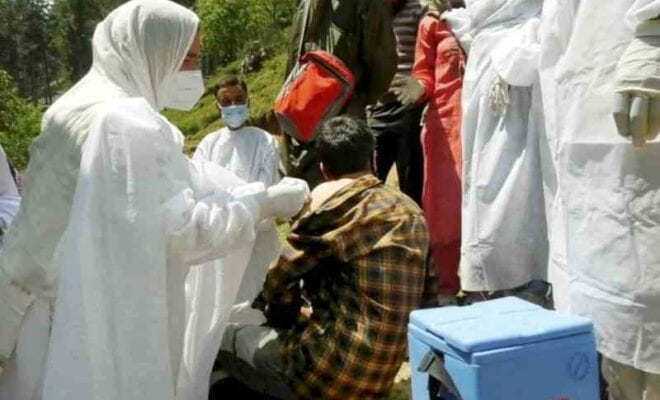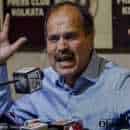How J&K Met The 100% Inoculation Target With Village Weyan

For India, it is a proud moment as it declares one of its villages in Kashmir on the road to recovery from Covid-19, as it becomes a model village with 100 percent inoculation done.
It was indeed a challenge and insurmountable task made possible, as health workers reached out to all the 362 adult residents of the JK village to vaccinate them against Covid-19.
The remote village in limelight is the Weyan village of the Bandipora district. Speaking to the media, officials explained how Weyan village was covered under the J&K model plan. This was a 10-point strategy to inoculate everyone who is eligible for the shots at a faster pace.
The Union territory, it is confirmed as already achieved 70 percent vaccination for those in the 45+ age group despite the initial vaccine hesitancy, almost double the national average. Vaccine hesitation has been rampant across the nation, with messaging of encouragement floating over the phones explaining to people the urgency and need to be vaccinated at the earliest.
Hurdles reported were manifold especially by healthcare workers. However, they were focused and determined to get everyone inoculated in the village. “The village is located only 28 kilometers away from Bandipora district headquarters, but a distance of 18 kilometers has to be covered by foot as there is no motorable road,” an official of the health department was quoted as saying by news agency PTI.
Related Posts
This is definitely good news for India. There was also the challenge to reach those who live in higher reaches. These primarily consist of nomadic families which are cut off from the main village. But they were convinced and inoculated too.
There is a new hashtag doing rounds redefining the reputation of the Centre. It is called #JammuAndKashmirmodel. There are reasons to rejoice because the method chosen in the conventional one that was used in eradicating polio from India. That was a success due to health workers that went on foot door-to-door collecting data across the length and breadth of the nation to get the exact statistics for an immunization drive. It was a grand success. This time too, the village has no internet access.
“There was no possibility therefore for the residents to get appointments for vaccination like the way people in urban areas do,” Bashir Ahmed Khan, Bandipora’s chief medical officer said. Yet the job has been done, without too much bureaucracy and technological glitch. Sometimes old methods work best when mitigating a crisis.



